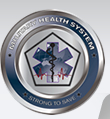 Military Will Have Enough H1N1 Vaccine, Officials Say
Military Will Have Enough H1N1 Vaccine, Officials Say
By Judith Snyderman
As shipments of some 3.7 million doses of H1N1 vaccine ordered by the Defense Department continue to arrive from the manufacturer, more than enough will be available for all military personnel and their beneficiaries, military medical experts say.
Navy Cmdr. Danny Shiau, division chief for the Bureau of Navy Medicine and Surgery's force health protection, and Dr. Robert Morrow, the bureau's preventive medicine programs and policy officer, took questions about the military's seasonal flu and H1N1 preparedness efforts during an Oct. 29 DoDLive bloggers roundtable .
Morrow explained why it has taken the primary manufacturer, Novartis, longer than expected to produce the vaccine.
"This is a tough little virus to grow," he said. "It's pretty nasty when it gets in the eggs, so they haven't been able to grow it quite as fast as they had hoped, and everybody's supplies are linked to each other since we're are all getting it from the same manufacturer."
Immunization for both seasonal flu and H1N1 is mandatory for all military personnel and it is highly recommended for beneficiaries. When the first cases of H1N1 were diagnosed in April, Morrow said, the department bought 2.7 million doses of the vaccine for mission assurance purposes.
At the time, it was unclear how many doses, per person, would be needed. But a single dose has been determined to be effective, Morrow said. The Health and Human Services Department donated 1 million doses of the vaccine, Sanofi Pasteur, to the department, "so that's a total of 3.7 million individuals for [Defense Department] active duty, reservists, civilians and essential contractors," he said.
First priority for the vaccine will go to deployed forces, Shiau said, first in places like
Priorities for beneficiaries in the
Overseas, civilian defense workers and beneficiaries will be able to get the H1N1 vaccine at military treatment facilities.
Shiau added that so far, the general severity of cases seen has been mild to moderate and there's been no operational effect on defense. But, he said, those with symptoms should contact their doctor or treatment facility before heading to an emergency room, because some facilities have special procedures. "The bottom line is, you don't want to spread it in the ER," he said.
The extra care being taken may be because "this is the first time that we've had two different kinds of influenza going around at the same time and two different kinds of influenza shots going around at the same time, and it's very confusing, even to those who do this day in and day out," Morrow said.
His best advice is that when you have questions, "ask and clarify." Shiau added that to help prevent spreading seasonal and H1N1 flu, people should wash their hands thoroughly, cover their mouths when coughing and, when possible, do not go to work sick.
(Judith Snyderman works in the Defense Media Activity's emerging media directorate.)
